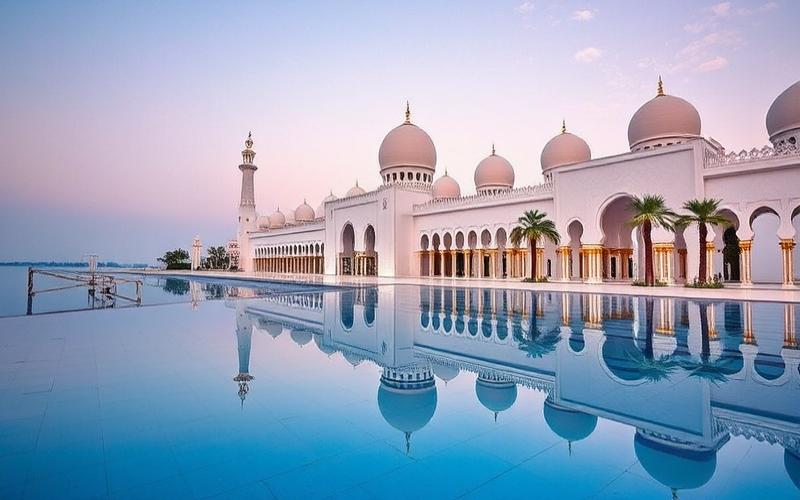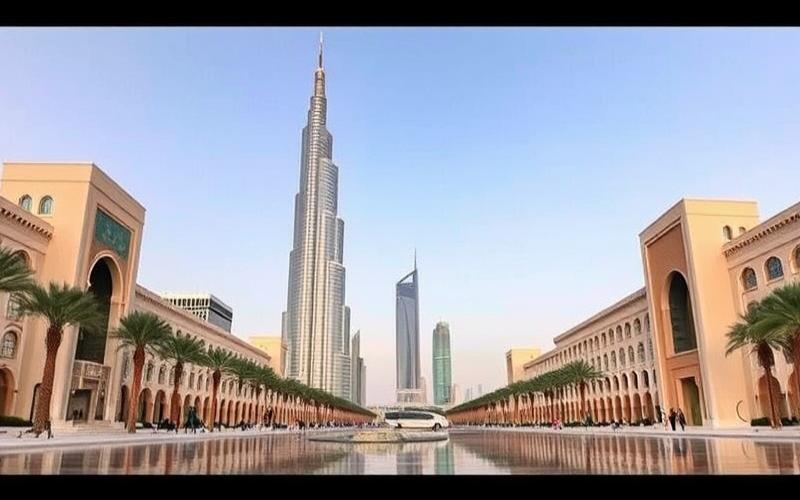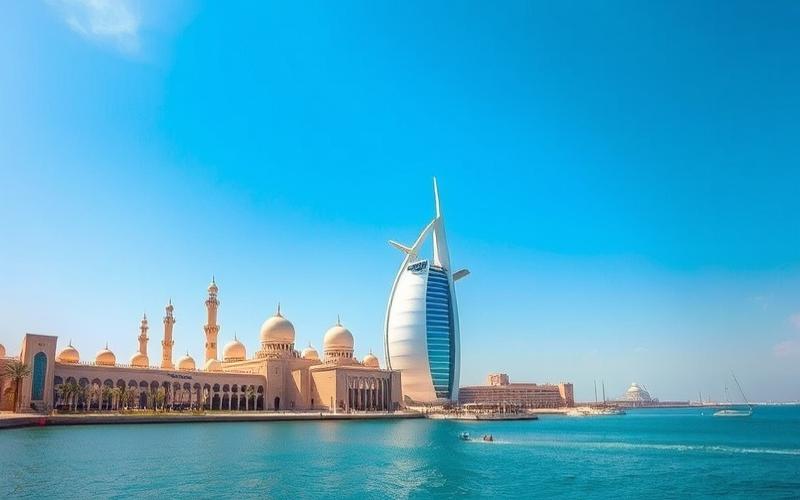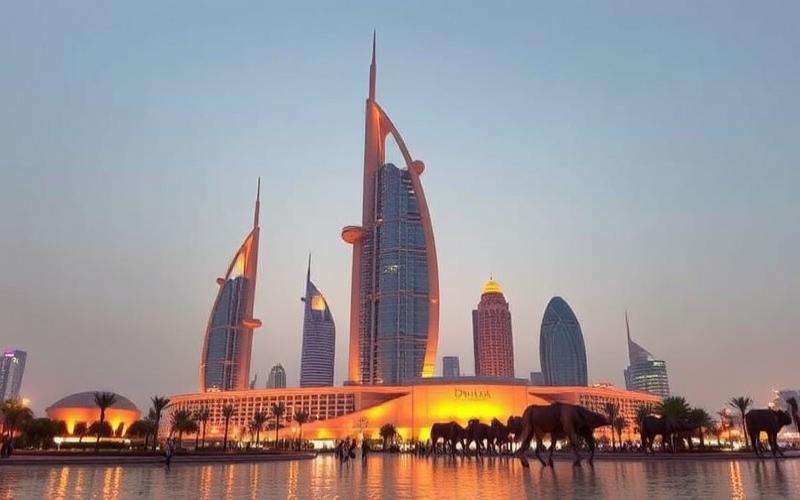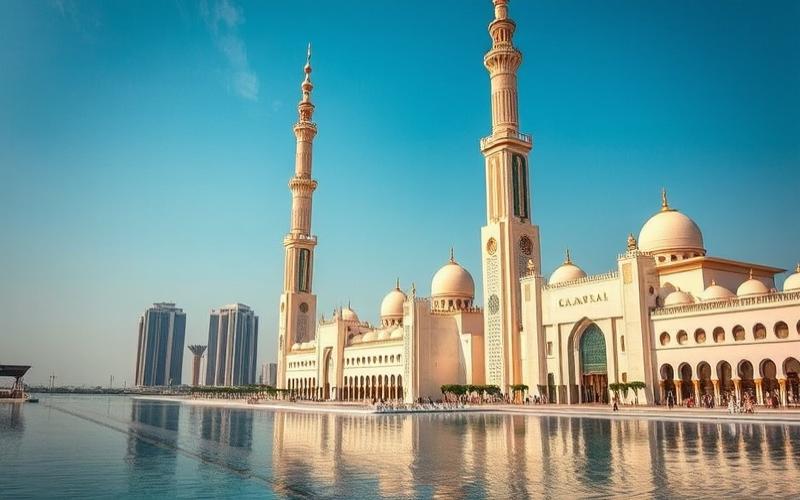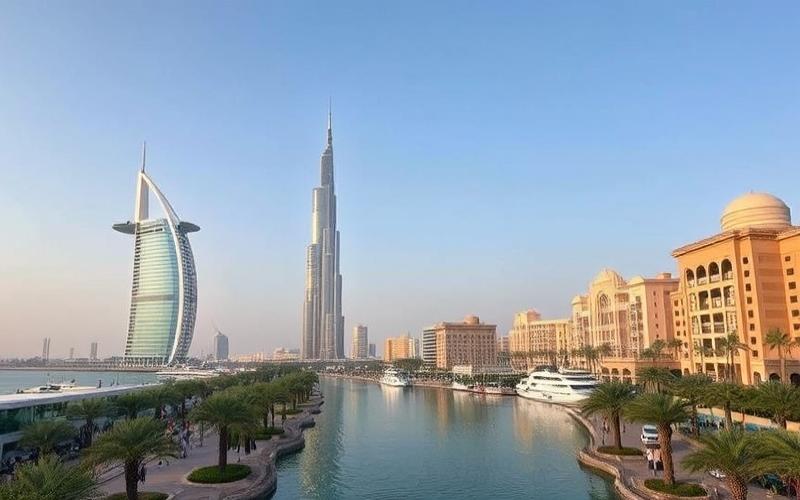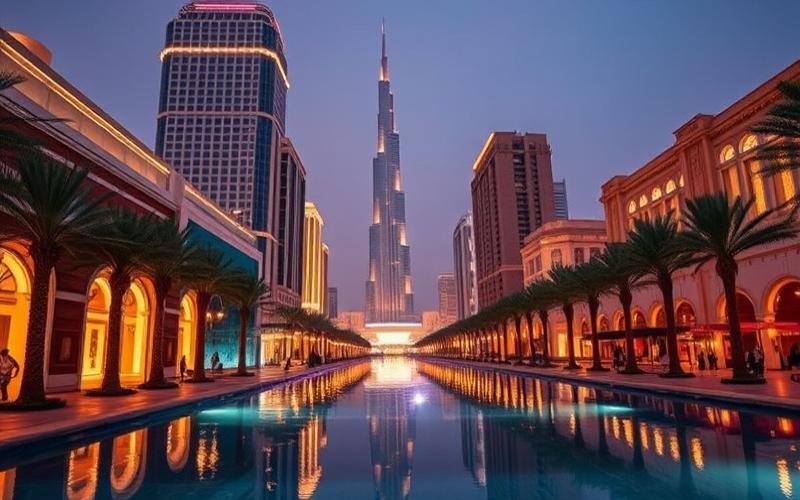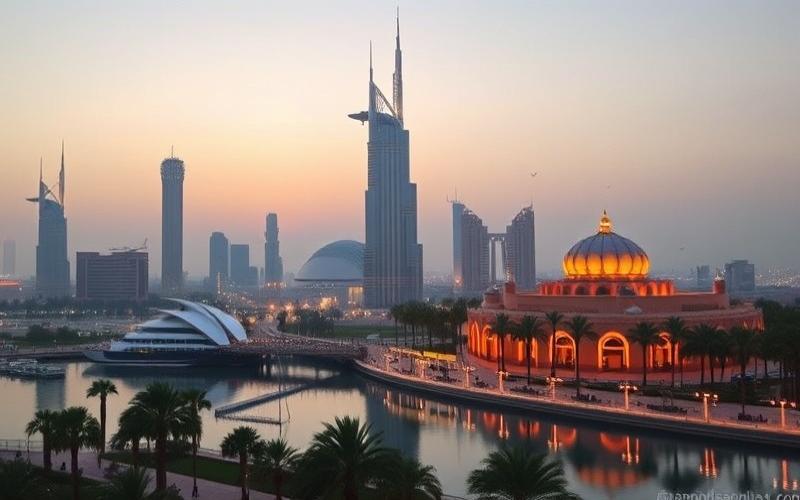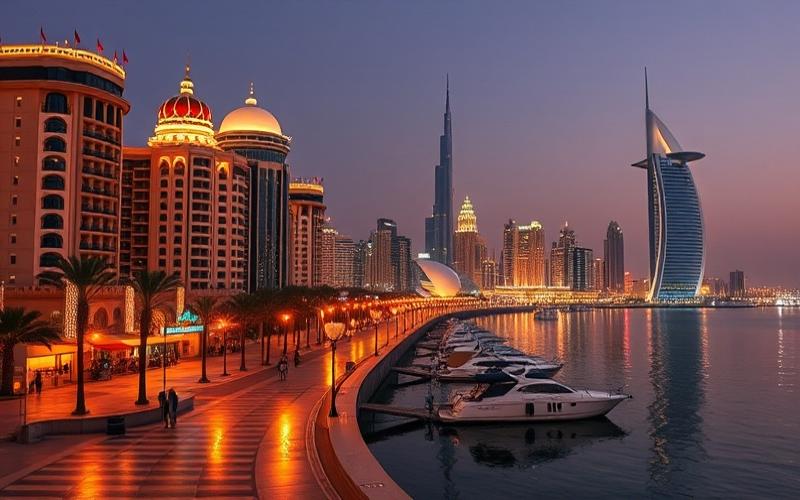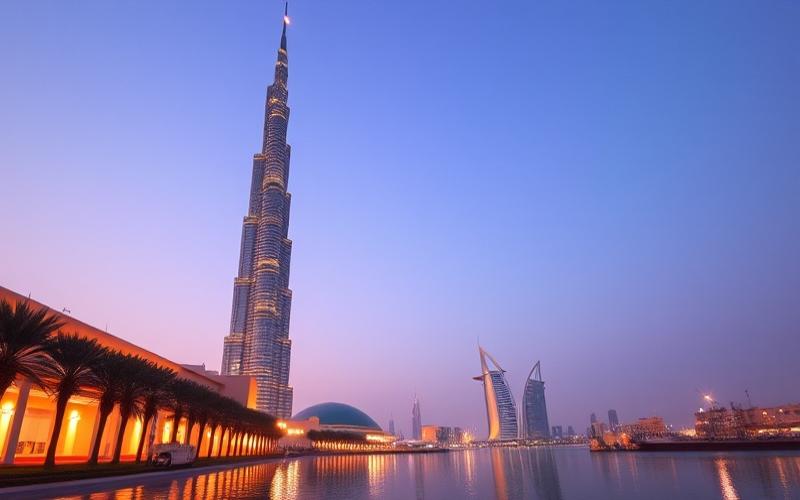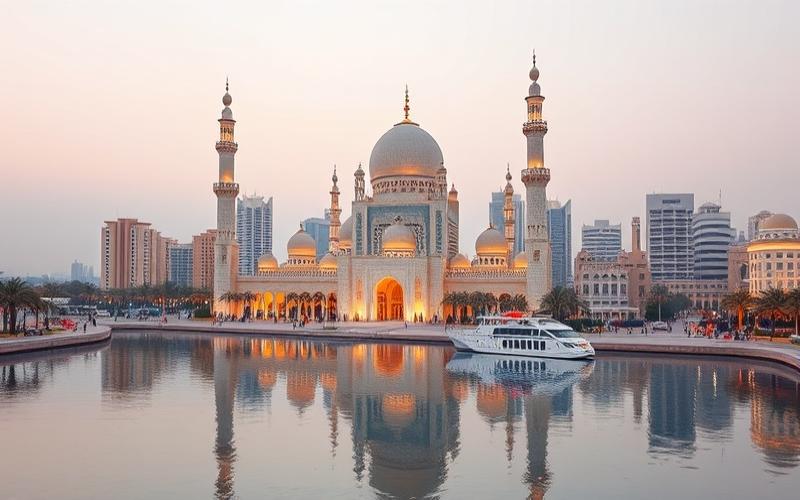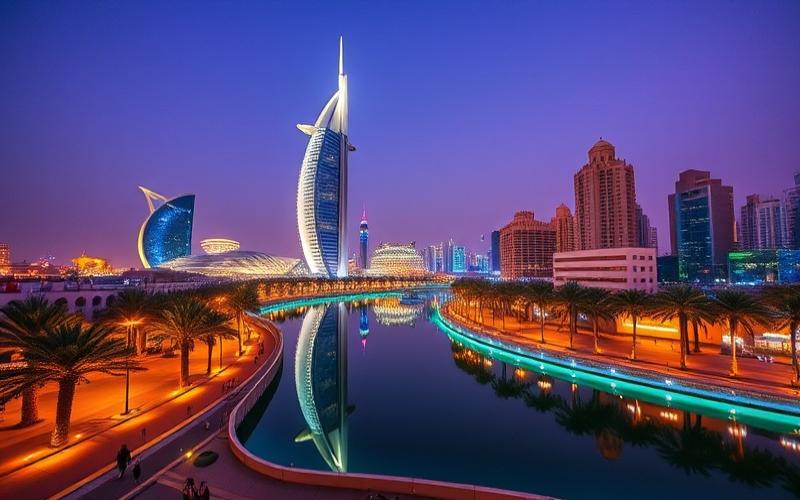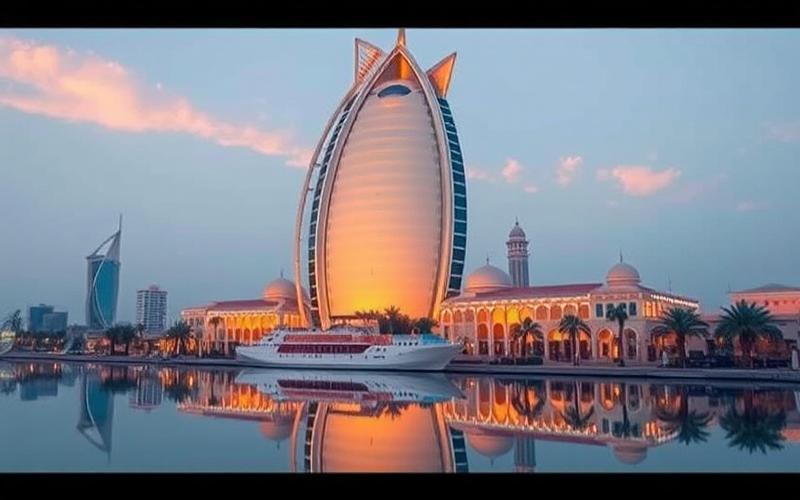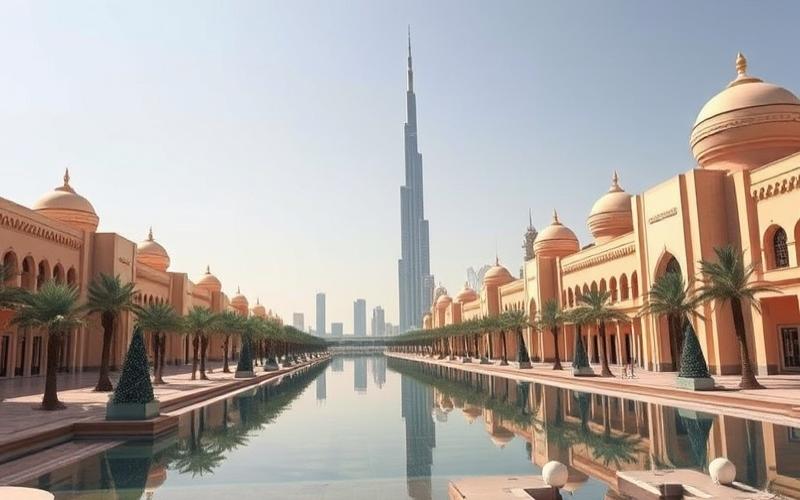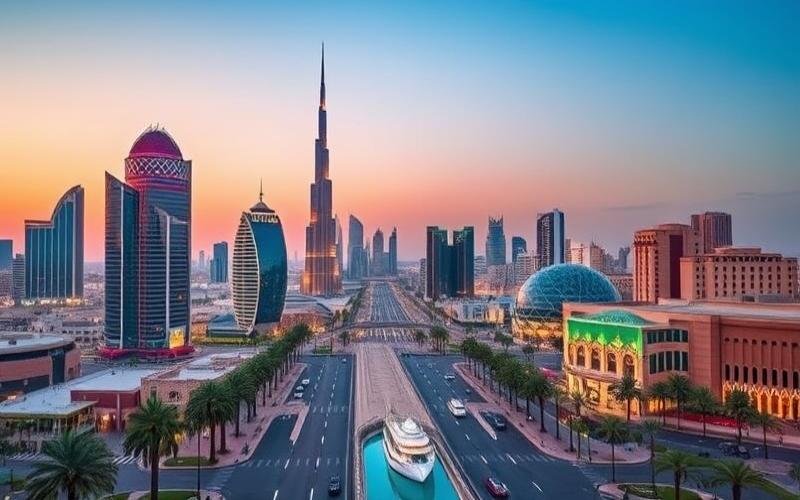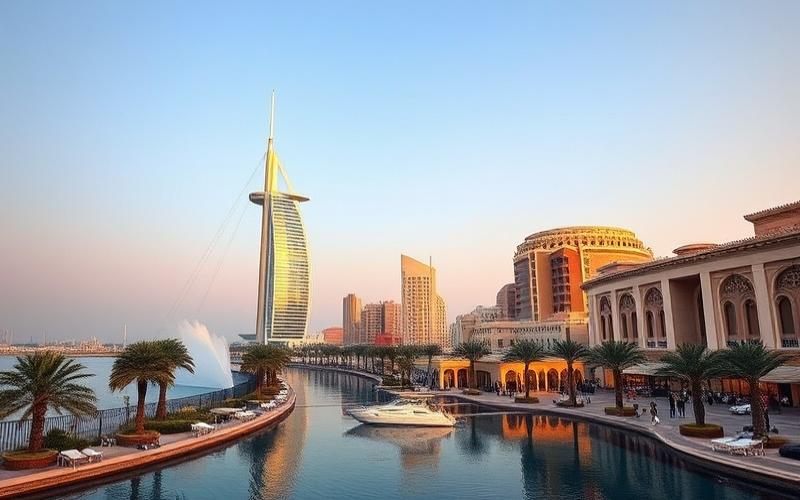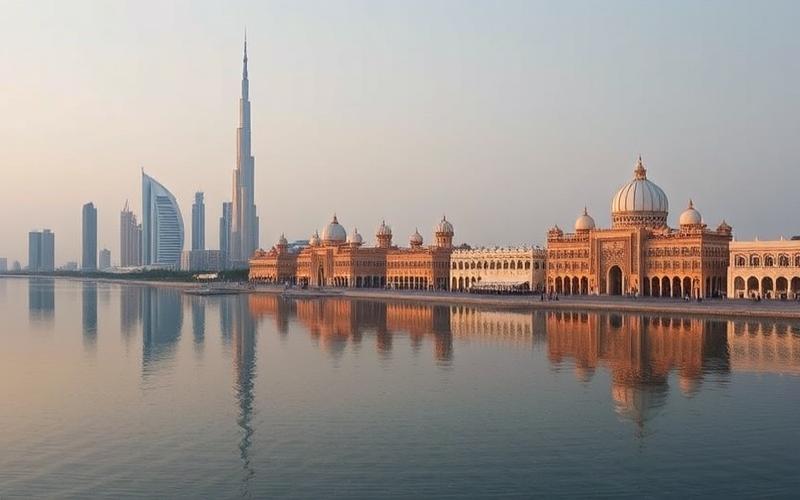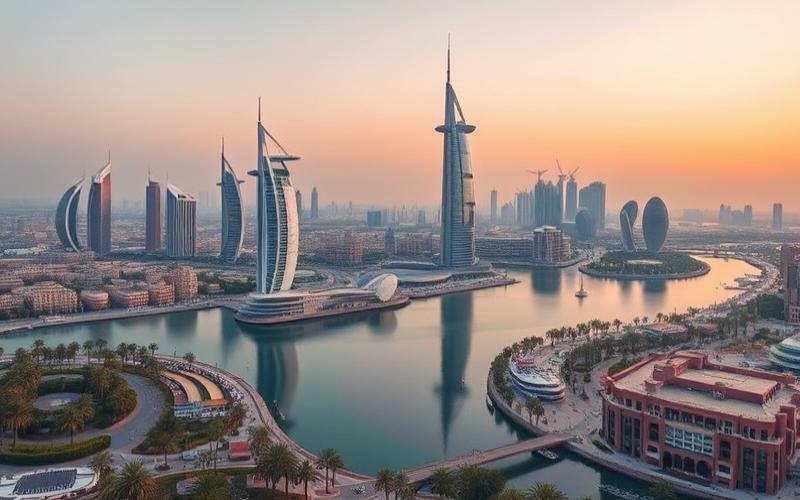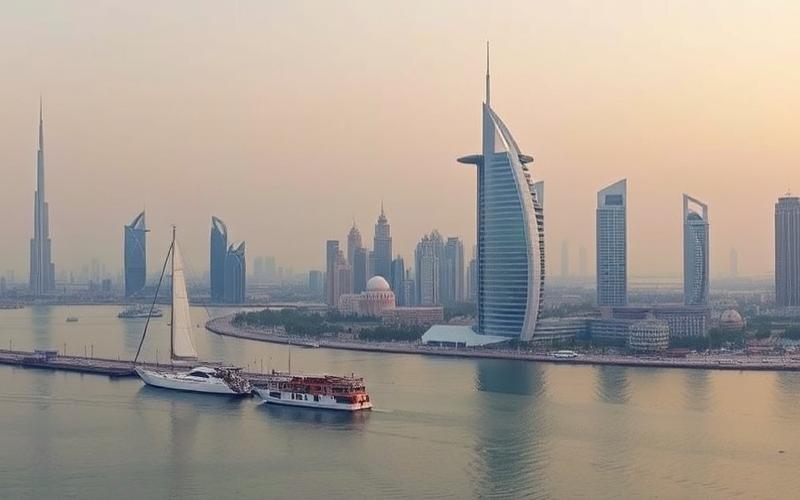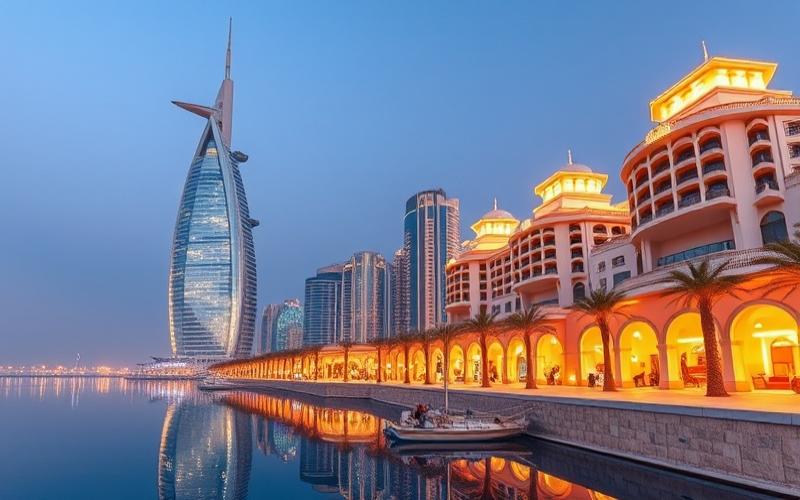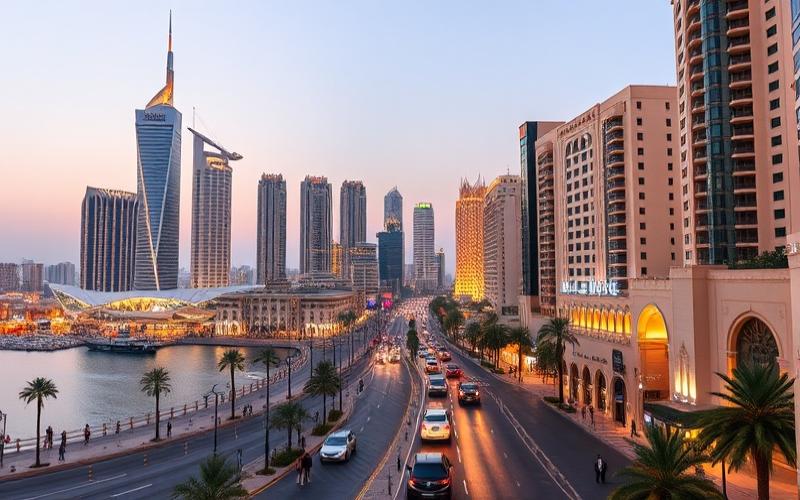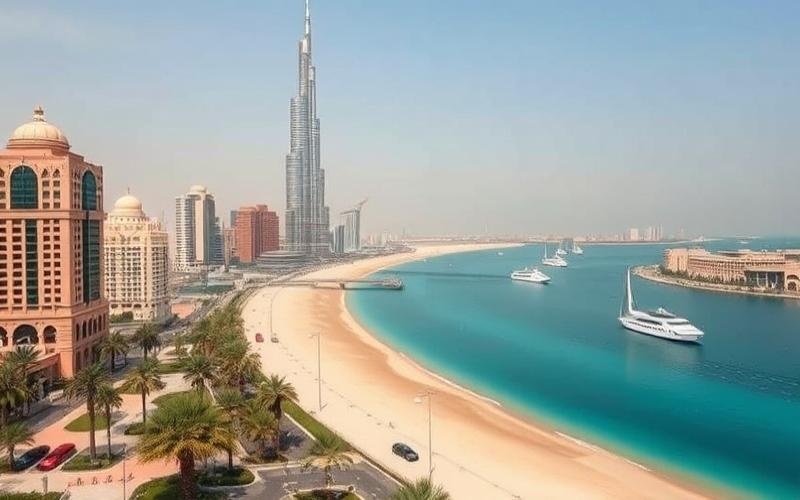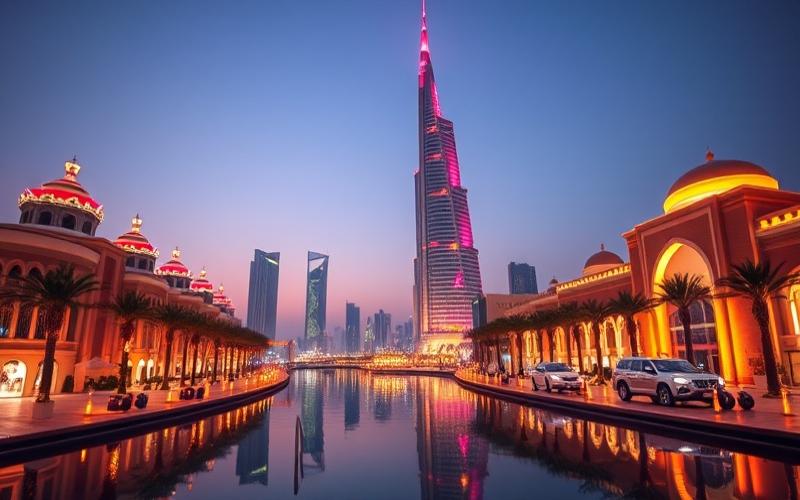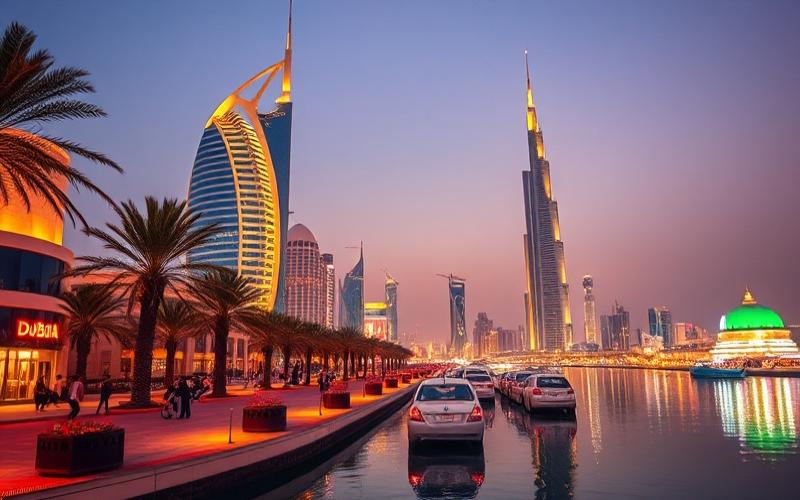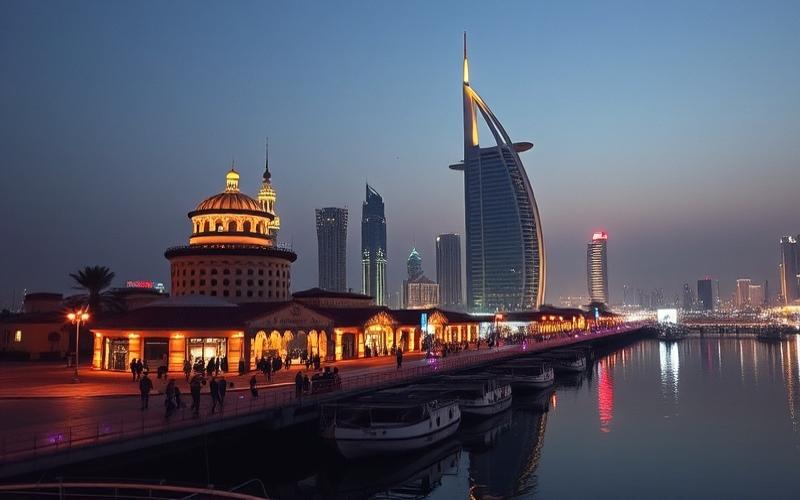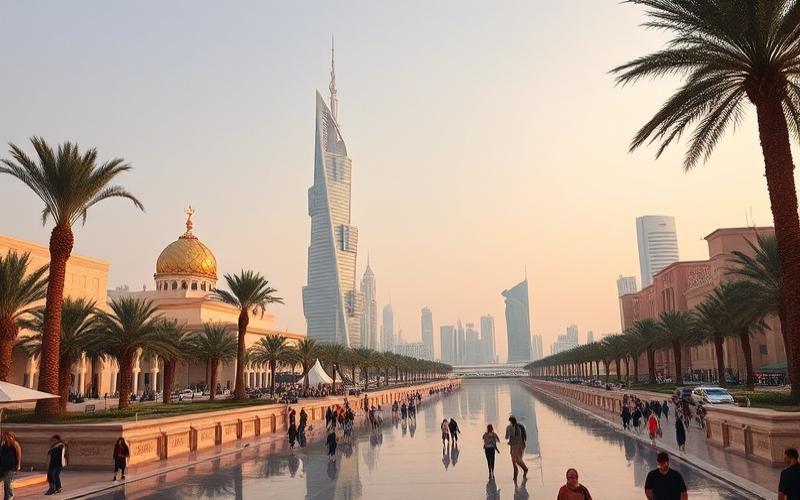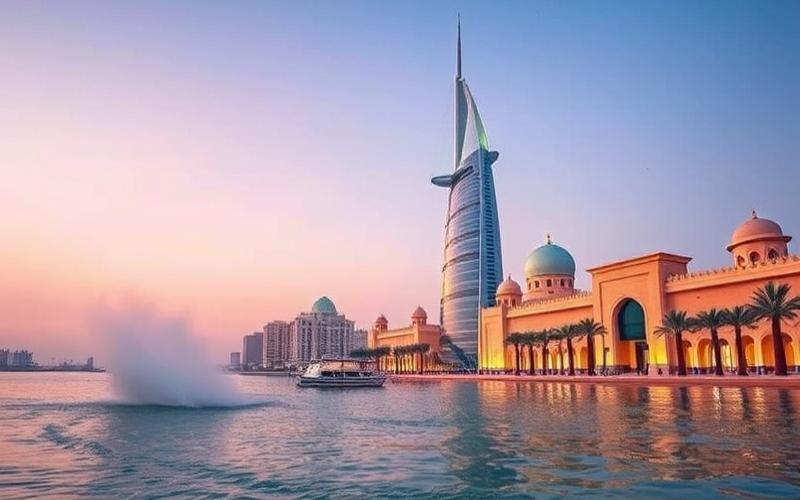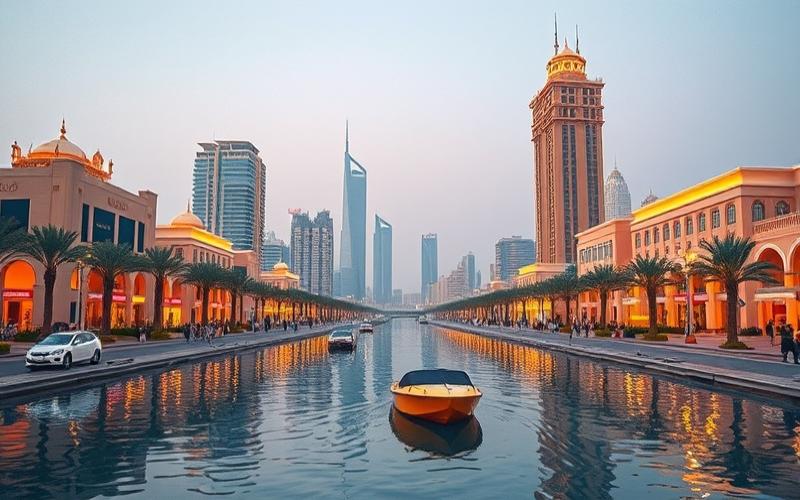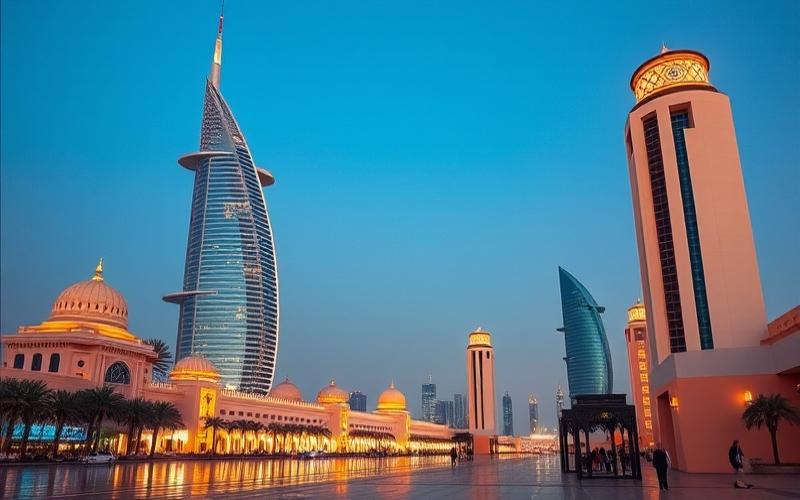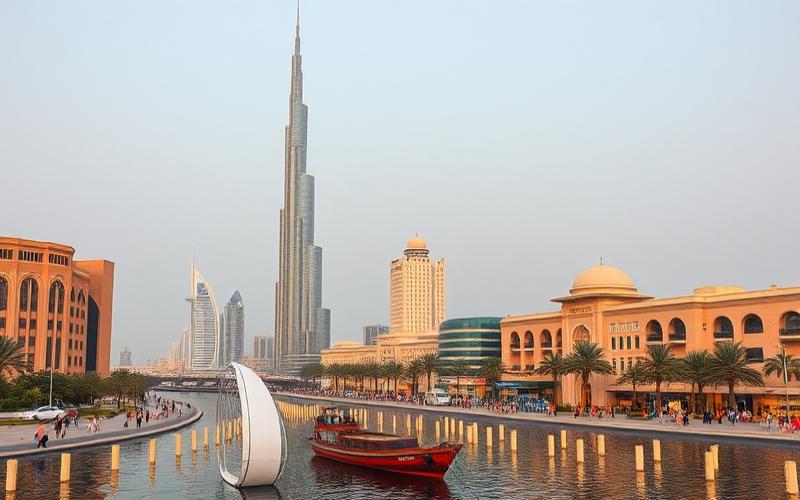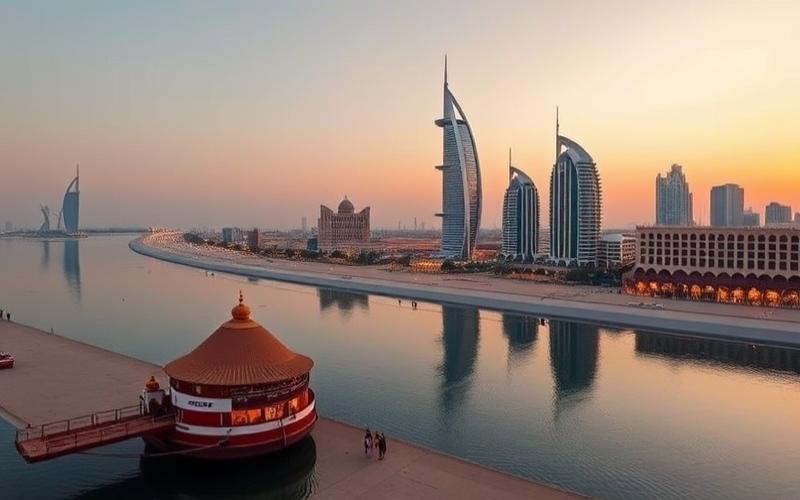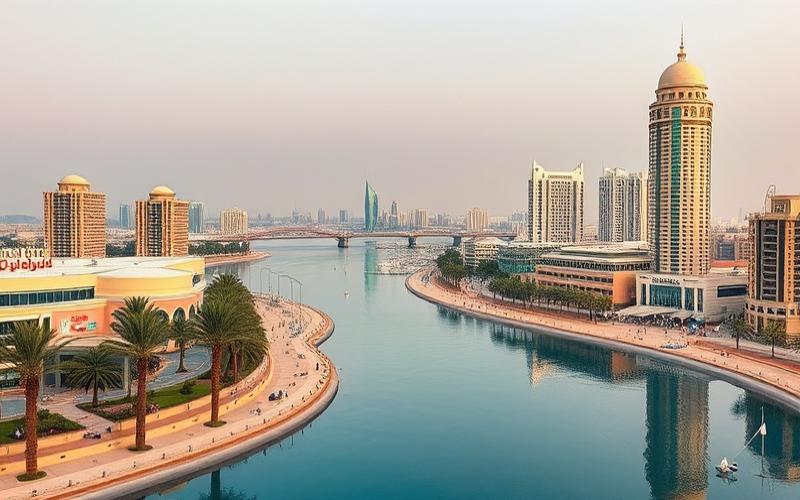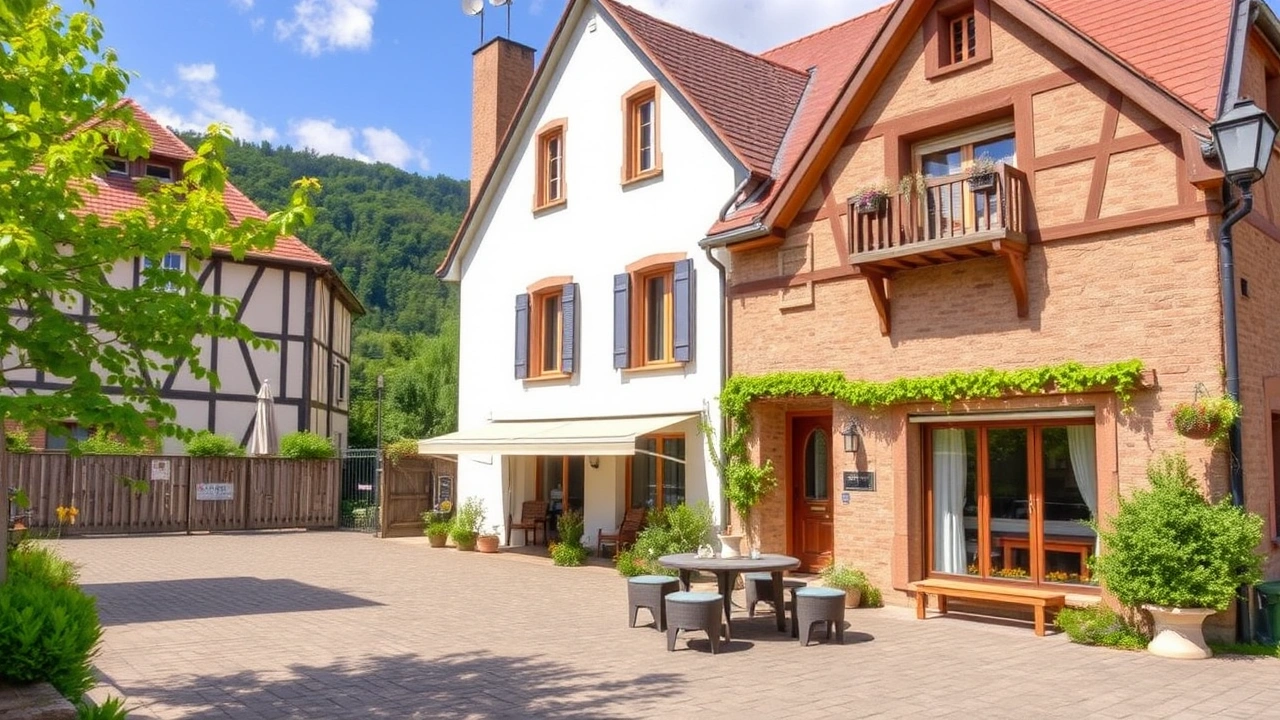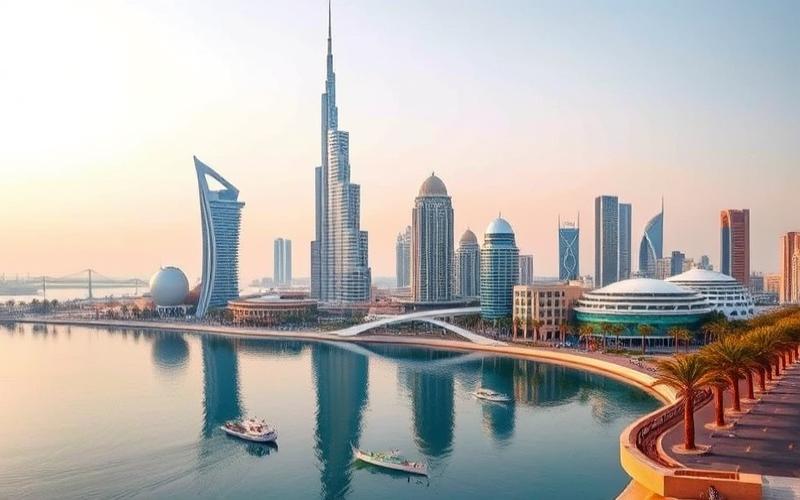
 Published on and written by Cyril Jarnias
Published on and written by Cyril Jarnias
Dubai, the jewel of the United Arab Emirates, has been attracting investors from around the world for years thanks to its dynamic real estate market and unique opportunities. Whether you’re a seasoned investor or an individual looking for a second home, it’s crucial to understand the nuances of the legal and regulatory framework governing the real estate sector in this Middle Eastern metropolis. In this article, we’ll explore the essential aspects of real estate laws and regulations in Dubai, enabling you to make informed decisions and maximize your investments.
Property Rights for Foreigners: An Open and Welcoming Market
Unlike many Middle Eastern countries, Dubai has adopted a particularly open approach to real estate ownership for foreigners. This policy has played a crucial role in the city’s appeal to international investors and has contributed to the explosive growth of its real estate market.
Foreigners have the right to acquire real estate as freehold property in designated areas, known as “freehold” zones. These zones, introduced in 2002, allow non-UAE nationals to buy, sell, and lease properties without restrictions. Among the most popular freehold areas are Dubai Marina, Palm Jumeirah, Downtown Dubai, and Emirates Hills.
Outside these zones, foreigners can benefit from long-term leases, typically for 99 years, offering an attractive alternative to freehold ownership. These leases grant rights similar to ownership, allowing investors to fully enjoy their real estate property.
It’s important to note that purchasing a property with a minimum value of 750,000 AED (approximately $200,000 USD) allows for obtaining a renewable residence visa. This provision has significantly strengthened Dubai’s appeal to foreign investors, offering not only investment opportunities but also facilitated access to residence in the emirate.
Good to Know:
Foreigners can purchase freehold properties in Dubai’s freehold zones, and a real estate investment can open the door to a residence visa, making the market particularly attractive for international investors.
The Legal Framework: Clear Laws for Enhanced Protection
Dubai’s real estate sector is governed by a set of laws and regulations aimed at protecting the rights of buyers, sellers, and tenants. These provisions have evolved significantly over the years to adapt to the rapid market growth and the needs of international investors.
Law No. 7 of 2006 on Land Registration is one of the cornerstones of Dubai’s real estate legal framework. This law established the principle of mandatory registration of all real estate transactions with the Dubai Land Department (DLD). This process ensures transaction transparency and protects investors’ property rights.
In 2007, Law No. 8 on Real Estate Escrow Accounts was introduced to strengthen off-plan buyer protection. This law requires developers to deposit buyer payments into specific escrow accounts, ensuring that funds are used exclusively for the concerned project.
Law No. 6 of 2019 on Jointly Owned Property brought important clarifications regarding the management of common areas in real estate developments. It defines the rights and responsibilities of owners and owners’ associations, ensuring better management of mixed-use properties.
More recently, Decree No. 43 of 2023 on Regulating Dubai’s Real Estate Market introduced new measures aimed at strengthening market stability. This decree includes provisions on transaction transparency, combating excessive speculation, and improving real estate agent practices.
Good to Know:
Dubai’s real estate legal framework is constantly evolving, with laws aimed at protecting investors, ensuring transaction transparency, and maintaining market stability. It’s crucial to stay informed about the latest regulations before investing.
Real Estate Taxation: An Attractive Regime for Investors
One of the most attractive aspects of real estate investment in Dubai is undoubtedly its extremely favorable tax regime. This advantageous tax policy has played a major role in the city’s appeal to investors worldwide.
No Income Tax: Unlike many countries, Dubai does not levy income tax, including on rental income. This means owners can keep all rental income received, subject to management and maintenance fees.
No Annual Property Tax: There is no recurring property tax in Dubai, which significantly reduces property holding costs compared to other international investment destinations.
Capital Gains Tax Exemption: Capital gains realized from selling a property are not taxed in Dubai, offering attractive return potential for long-term investors.
However, it’s important to note that certain fees and taxes apply during real estate transactions:
- Transfer fee: 4% of sale price, typically shared between buyer and seller
- Registration fee: 0.25% of property value for title deed registration
- Real estate agent fee: Typically 2% of sale price, paid by seller
It’s crucial to note that even though rental income is not taxed in Dubai, tax residents of other countries may be required to declare this income in their home country. For example, French tax residents must declare their Dubai rental income in France, although they may benefit from a tax credit equal to the theoretical French tax due, under the tax treaty between France and the United Arab Emirates.
Good to Know:
Dubai’s tax regime is extremely favorable to real estate investors, with no income tax, property tax, or capital gains tax. However, it’s essential to consider tax obligations in your country of tax residence.
Owner Rights and Obligations: A Balance Between Freedom and Responsibility
In Dubai, property owners enjoy extensive rights but are also subject to certain obligations aimed at maintaining harmony and quality of life in residential communities.
Owner Rights:
- Rental freedom: Owners have the right to lease their property, whether for long-term or short-term (subject to specific community regulations)
- Sale right: Owners can sell their property at any time, without restrictions on buyer choice (national or foreign)
- Property use: Owners can use their property as primary residence, secondary residence, or as rental investment
- Management participation: In jointly owned properties, owners have the right to participate in decisions regarding common area management
Owner Obligations:
- Service charge payment: Owners must pay service and maintenance fees for common areas in jointly owned properties
- Regulation compliance: Each residential community has its own rules that owners must respect (for example, regarding exterior modifications or use of common areas)
- Property maintenance: Owners are responsible for maintaining their property to uphold community quality standards
- Tenant registration: Owners must register their lease contracts with the Dubai Land Department’s Ejari system
It’s important to note that Law No. 26 of 2007 governing the relationship between owners and tenants establishes a clear framework for the rights and obligations of each party. This law covers aspects such as rent increases, eviction grounds, and conflict resolution procedures.
In case of dispute, the Dubai Rental Dispute Settlement Center (RDSC) offers an effective mechanism for resolving differences between owners and tenants. This system allows for quick and fair conflict resolution, thereby strengthening confidence in Dubai’s rental market.
Good to Know:
Property owners in Dubai enjoy great freedom in using and managing their property but must respect local regulations and community rules. An effective dispute resolution system is in place to protect the rights of owners and tenants.
Recent Regulatory Developments: Towards a More Mature and Stable Market
The regulatory framework of Dubai’s real estate sector is constantly evolving, reflecting the authorities’ willingness to adapt legislation to market challenges and investor needs. These changes aim to strengthen the stability, transparency, and attractiveness of the emirate’s real estate market.
Real Estate Agent Regulation: In 2023, new regulations were introduced to further professionalize the real estate agent sector. These measures include continuing education requirements, strengthened ethical standards, and stricter penalties for fraudulent practices. The goal is to improve service quality for investors and strengthen market confidence.
Short-Term Rental Regulation: Faced with growing popularity of Airbnb-type rentals, Dubai implemented a specific regulatory framework for short-term rentals in 2022. Owners wishing to lease their property for stays of less than 3 months must now obtain a special license and comply with certain quality and safety standards. This measure aims to balance opportunities offered by the sharing economy with the need to preserve quality of life in residential neighborhoods.
Strengthening Off-Plan Buyer Protection: In response to lessons learned from the 2008-2009 real estate crisis, authorities have continuously strengthened off-plan buyer protection measures. The latest regulations impose stricter financial guarantees on developers and increased control over project progress before releasing funds from escrow accounts.
Sustainability Initiatives: As part of Dubai’s vision to become a sustainable city, new regulations encourage construction of eco-friendly buildings. Tax incentives and accelerated approval processes are implemented for projects meeting certain sustainability standards, which could influence long-term investment choices.
Digitalization of Real Estate Services: The Dubai Land Department has launched several initiatives to digitize processes related to real estate transactions. These efforts, accelerated by the COVID-19 pandemic, aim to simplify buying, selling, and leasing procedures, making the market more accessible to international investors.
It’s crucial for investors to stay informed about these regulatory developments, as they can significantly impact investment strategies and potential returns. Working with well-informed local professionals can help navigate this constantly evolving regulatory landscape.
Good to Know:
Dubai’s real estate regulatory framework is evolving rapidly to meet market challenges and investor needs. These changes aim to strengthen market stability, transparency, and attractiveness, while protecting buyer rights and encouraging sustainable practices.
Real estate investment in Dubai offers unique opportunities thanks to a legal framework favorable to foreigners, advantageous taxation, and an ever-evolving market. However, as with any international investment, it’s crucial to understand local specifics and stay informed about regulatory changes. Whether you’re considering acquiring a luxury second home or diversifying your investment portfolio, Dubai presents attractive potential for savvy investors.
Disclaimer: The information provided on this website is for informational purposes only and does not constitute financial, legal, or professional advice. We encourage you to consult qualified experts before making any investment, real estate, or expatriation decisions. Although we strive to maintain up-to-date and accurate information, we do not guarantee the completeness, accuracy, or timeliness of the proposed content. As investment and expatriation involve risks, we disclaim any liability for potential losses or damages arising from the use of this site. Your use of this site confirms your acceptance of these terms and your understanding of the associated risks.

